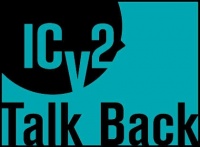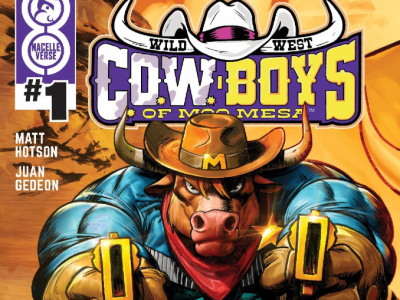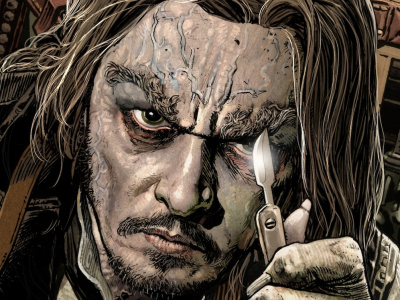 Joe Krolik of Comics America in Winnipeg, Canada comments on Kirby Tardy's thoughts on DC's "holding the line" pricing (see "Kirby & Deb Tardy of Tardy's Collectors Corner on Discount Plateaus") and also remarks on digital comics.
Joe Krolik of Comics America in Winnipeg, Canada comments on Kirby Tardy's thoughts on DC's "holding the line" pricing (see "Kirby & Deb Tardy of Tardy's Collectors Corner on Discount Plateaus") and also remarks on digital comics.I read Kirby Tardy's comments about DC's holding the line on pricing and I was wondering when someone would pick up on the problems inherent with this promotion. There is another point that he's neglected to mention: By eliminating the higher price point, effectively DC has taken away one dollar from every copy of one of those books that he would have sold that month. Using only 200 copies of various books being affected, that's $200 from his top line and $100 from his bottom line (assuming the 50% discount), that's just disappeared.
The rationale was thought to be that by lowering the prices, DC would have him sell that many more copies because the theory is that the lower price would attract more readers or would tempt current readers of other titles to try a title they may have given up on because of price or may have never been interested in in the first place. However, to make up that $100 on the bottom line, he then has to sell another 65 copies ON TOP of the ones he already sells! For a smaller store (and even for some medium ones) that's just not going to happen. So the retailer actually winds up further behind because of this.
This is because there is (and has for the past 40 years been) a basic misunderstanding of the comic book market and the average comic book customers, who are largely creatures of habit. For example, DC is flogging the notion that by lowering prices customers will magically appear from thin air and automatically flock to comic specialty shops to pick up its new cheaper books. Meantime they don't do a thing to promote this to a wide audience. I'm not talking about promo shelf talkers and posters touting the policy within the comic specialty shop. For those they are preaching to the converted. I'm not talking about their so-called co-op program either because the terms are so onerous that it's not worth the hassle for a larger store to use, and it's positively prohibitive for a smaller one. The wider audience I'm talking about is that great population out there who hasn't got a clue about comics, but might have some interest if there was some attractive ad campaign outside comic specialty shops to promote the product. But DC isn't willing to do anything like that. (To be fair, neither is any other company.) Supposedly Free Comic Book Day takes care of that issue by attracting all sorts of folks to "sample the goods" as it were. Yes it does. And they come in, take the free comics, and most of them then disappear totally until next year when there is another Free Comic Book Day when they can get something for nothing again. You might get the odd regular out of it. So DC has not done anyone including themselves a favor even though at first it seems like they're doing one. All of this stuff falls under what I call The Law Of Unforeseen Consequences. It all sounds good, until you do the math.
There is another offshoot from this: assuming that Diamond gets its revenue as a percentage of cover price, then each of those dollars that's missing has taken something out of Diamond's pocket, making it that much harder for them as well. The costs of distributing a $2.99 book are just as much as for a $3.99 book. Let's not forget that DC has also cut its own nose because they are also getting lower revenue. And so it goes all along the food chain.
Which brings us to the subject of the current reboot of the title numbering and the apparent changes to some (if not all) of the characters. To which I wonder: How many times are they going to mess around with the numbering and the characters in a misguided effort to convince people that they can jump onto a book and start reading it fresh? It's only been tried 5 or 10 times since 1985. It hasn't worked before and I doubt that it's going to work now. In fact if current readers don't like the changes, there is a good chance that they'll drop even more titles yielding exactly the opposite result than the one that's expected. In fact, if enough readers get fed up with this constant rebooting every couple of years, they might give up entirely, and that includes downloads as well, because it's just too much aggravation already!
Speaking of downloads, couple this reboot with the news that the entire line is going digital day and date, and I can readily see that in the not too distant future DC may just stop publishing physical books altogether. It's obvious that they're sending the market a message with these types of endeavors. If that happens you can kiss the distribution system as it currently exists goodbye, and with it most of the smaller stores. Do you think that the remaining stores are going to sell a lot of downloads? Let's stop and think here: If anyone can get a download by directly paying the publisher a small fee (a la iTunes for example), then what on G-d's Green Earth would prompt them to leave the sanctity and comfort of their home to go to a physical comic specialty shop in order to buy batches of downloads? Have we not seen the example of Blockbuster Video? Netflix and other digital initiatives killed it and a whole mess of neighborhood video stores as well.
We've had the first Crisis, then Infinite Crisis, and then Final Crisis. All of these can be used to describe the state of the comics market for the past fifteen years. If we don't wake up and smell the coffee about what the market needs to really start going forward, I'm afraid that a Marvel title might be the best description of what's going to be, sadly: The End.
The opinions expressed in this article are solely those of the writer, and do not necessarily reflect the views of the editorial staff of ICv2.com.







